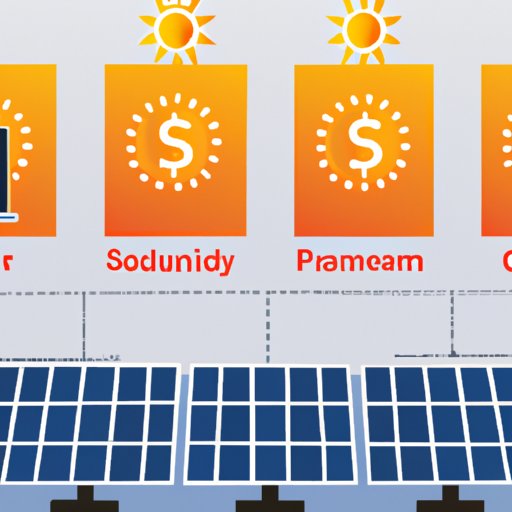Introduction
Solar technology is one of the most promising sources of clean energy available today. From powering homes to providing electricity for industrial purposes, solar energy offers numerous advantages over traditional fossil fuels. But how much has solar technology improved over the years? This article explores the cost-effectiveness, benefits, and advances of solar technology to examine how it has changed and evolved.
Analyzing the Cost Effectiveness of Solar Technology
When considering the cost-effectiveness of solar technology, it is important to consider both the initial investment and long-term savings. The initial cost of installing a solar system can vary depending on the size and type of system, as well as the location and labor costs. However, many homeowners are able to recoup their initial investment through tax credits and other incentives. Additionally, homeowners can save money on their utility bills by using solar energy, making it an attractive option for those looking to reduce their energy costs.

Examining How Solar Technology Has Improved Over Time
The performance and adoption rates of solar technology have increased significantly over the past few decades. According to a study from the Lawrence Berkeley National Laboratory, the cost of photovoltaic (PV) systems has declined by almost 80% since 1998, making them more affordable for homeowners. Additionally, innovations in materials, design, and installation have made solar systems easier to install and maintain, resulting in higher efficiency levels.
Exploring the Benefits of Solar Technology for Homeowners
In addition to reducing energy costs, there are several other benefits of solar technology for homeowners. Installing a solar system can increase the value of a home, often by up to $20,000 or more. Additionally, solar panels can enhance the aesthetics of a home, making it more attractive to potential buyers. Finally, homeowners who use solar energy can take advantage of net metering programs, which allow them to sell any excess energy they generate back to the grid.

Investigating the Impact of Solar Technology on the Environment
Solar technology also has a positive impact on the environment. By relying on renewable energy sources such as the sun, solar power reduces the emissions of greenhouse gases that contribute to global warming. Additionally, solar energy supports sustainable energy sources and helps reduce our reliance on fossil fuels.
Assessing the Advancements in Solar Technology
Advances in photovoltaic cells have made solar technology more efficient and reliable. Recent developments in battery storage capacity have enabled homeowners to store excess energy for use when needed. Additionally, new technologies such as tracking systems and smart inverters have made it possible to optimize the output of solar systems.

Evaluating the Efficiency of Solar Technology
The efficiency of solar technology depends on a variety of factors, including the location, orientation, and angle of the solar panels. Additionally, the type and quality of the solar panel can affect its output. Understanding these factors can help homeowners maximize the efficiency of their solar systems.

Discussing the Potential of Solar Technology in the Future
As solar technology continues to improve, it is likely that adoption rates will continue to rise. In the coming years, new technologies such as artificial intelligence and machine learning could further improve the performance of solar systems. Additionally, developments in battery storage capacity could enable homeowners to store larger amounts of energy for later use.
Conclusion
Solar technology has come a long way in recent years, offering numerous benefits to homeowners and the environment alike. From reducing energy costs and increasing property values to supporting sustainable energy sources, solar technology has proven itself to be a reliable source of clean energy. As the technology continues to evolve, it is likely that we will see further advances in the years to come. To ensure that solar energy remains a viable option, it is important to continue researching and encouraging its use.
(Note: Is this article not meeting your expectations? Do you have knowledge or insights to share? Unlock new opportunities and expand your reach by joining our authors team. Click Registration to join us and share your expertise with our readers.)
